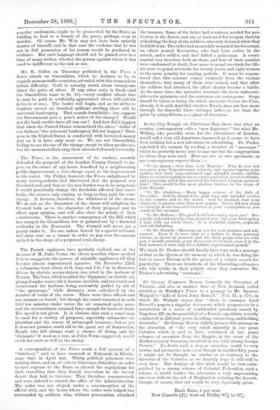A correspondent of the Times sends a full account of
a " butchery " said to have occurred at Yakoutsk, in Siberia, some time in April last. Thirty political prisoners were waiting there, and an ad interim Governor, Ostashine, in order to save expense to the State, so altered the regulations for their travelling that they feared starvation in the barren desert they had to traverse. They therefore remonstrated, and were ordered to attend the office of the Administration. The order was not obeyed, under a misconception of the official wish, and the house where the exiles were lodged was surrounded by soldiers, who, without provocation, attacked the inmates. Some of the latter had revolvers, needed for pro- tection in the desert, and one at least used his weapon, thereby redoubling the fury of the soldiers, who only desisted when they had killed six. The exiles had meanwhile wounded the Governor, an officer named Karamtine, who had been active in the attack, and a soldier, and had killed a policeman. A court.- martial was therefore held on them, and four of their number were condemned to death, four more to penal servitude for life, six more to penal servitude for twenty years, and eight women to the same penalty for varying periods. It must be remem- bered that this account comes evidently from the victims themselves, that many of them were armed, and that after the soldiers had attacked, the affair clearly became a battle. At the same time, the narrative recounts the facts unfavour- able to the prisoners, and the sentences are outrageous. Steps should be taken to bring the whole narrative before the Czar, already, it is said, doubtful whether Russia does not lose more through the discredit these outrages inflict on her than she gains by using Siberia as a place of detention.


































 Previous page
Previous page